|
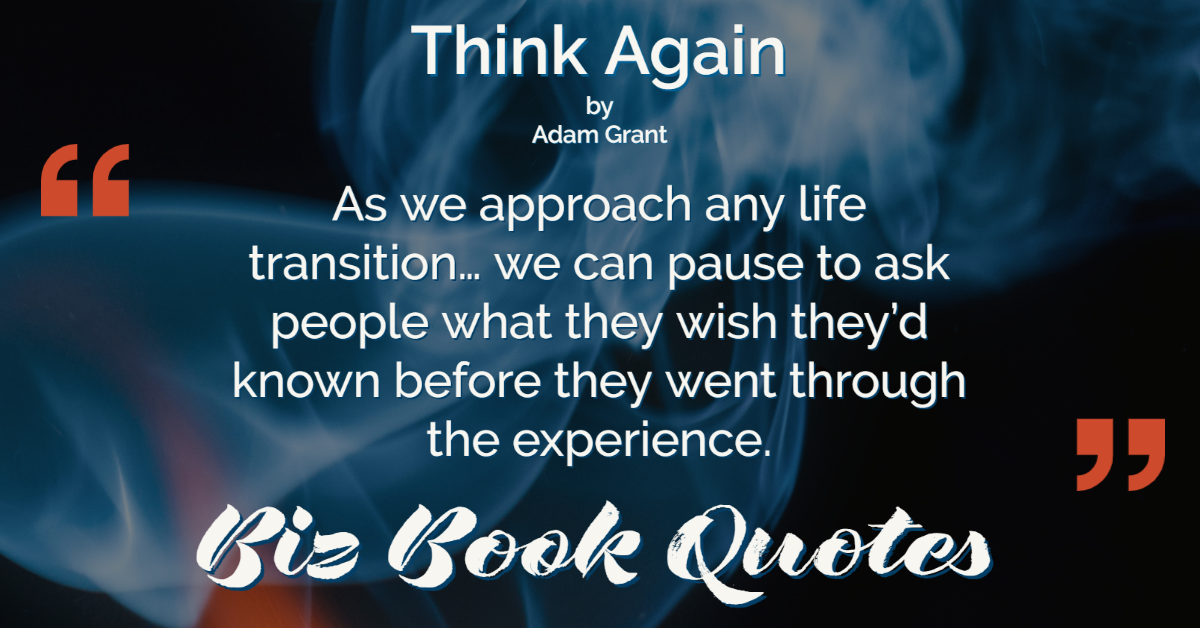
|
Think Again:
As we approach any life transition… we can pause to ask people what they wish they’d known before they went through the experience.
|
197 |
|
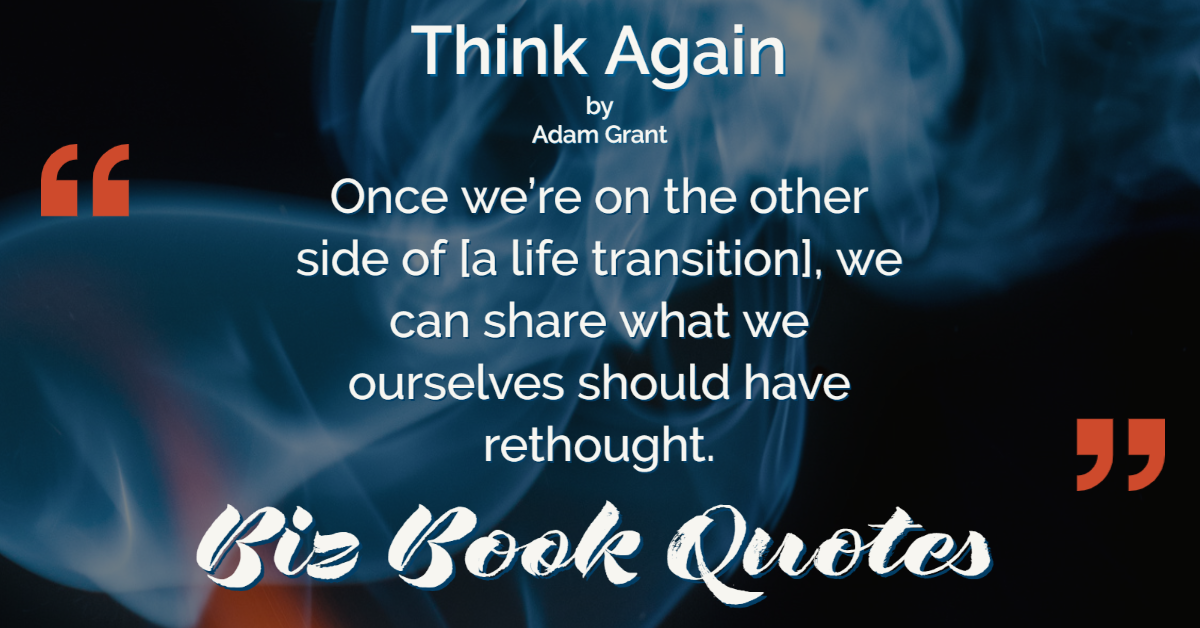
|
Think Again:
Once we’re on the other side of [a life transition], we can share what we ourselves should have rethought.
|
197 |
|

|
Think Again:
…psychologists find that one of the hallmarks of an open mind is responding to confusion with curiosity and interest.
|
199 |
|

|
Think Again:
Confusion can be a cue that there’s new territory to be explored or a fresh puzzle to be solved.
|
199 |
|
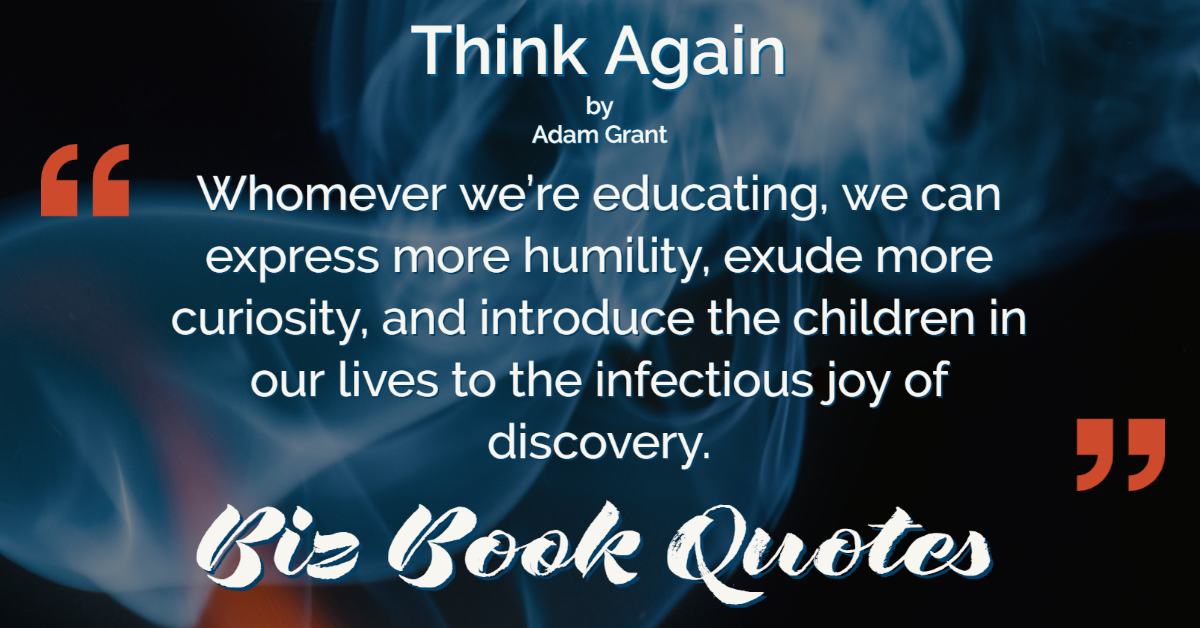
|
Think Again:
Whomever we’re educating, we can express more humility, exude more curiosity, and introduce the children in our lives to the infectious joy of discovery.
|
203 |
|
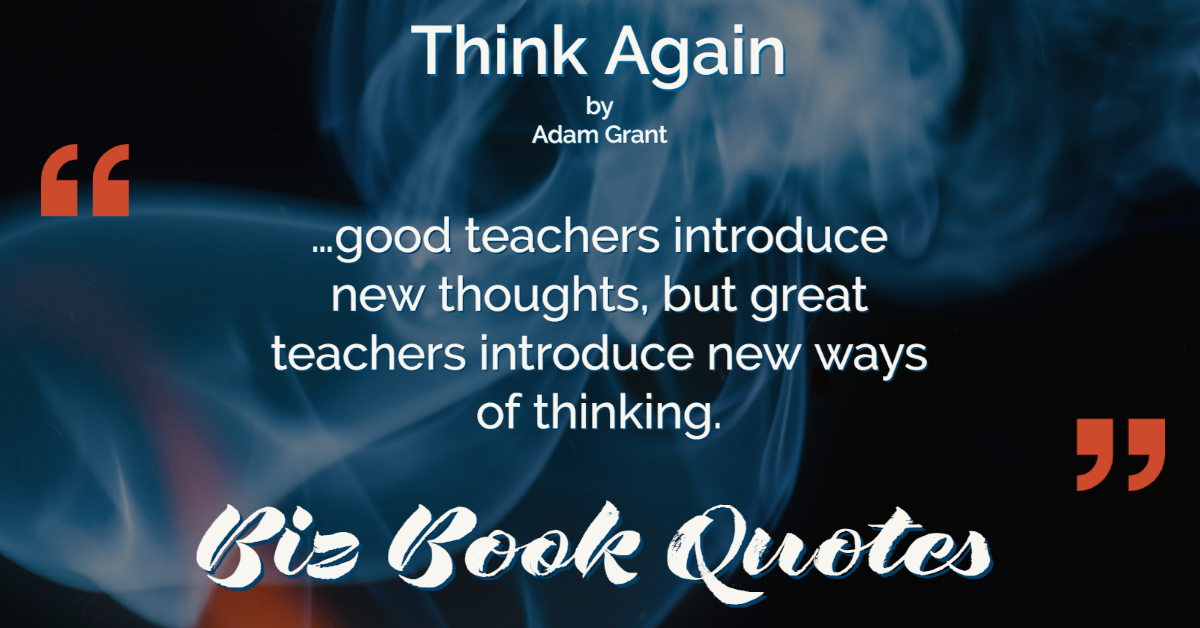
|
Think Again:
…good teachers introduce new thoughts, but great teachers introduce new ways of thinking.
|
203 |
|
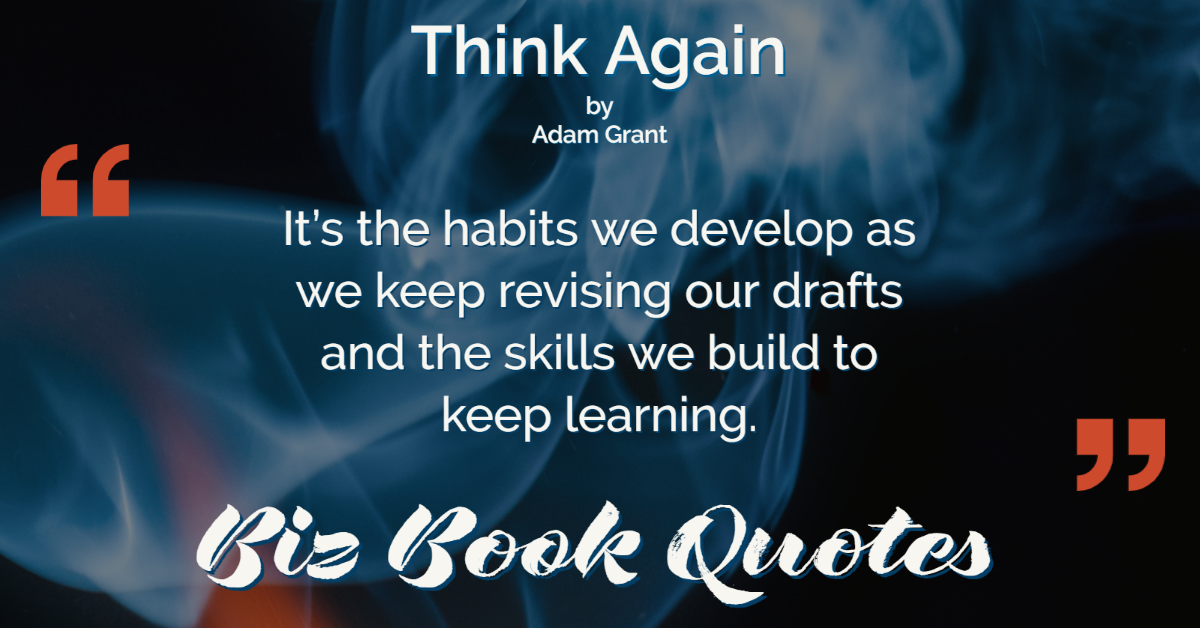
|
Think Again:
It’s the habits we develop as we keep revising our drafts and the skills we build to keep learning.
|
203 |
|

|
Think Again:
Rethinking is not just an individual skill. It’s a collective capability, and it depends heavily on an organization’s culture.
|
207 |
|
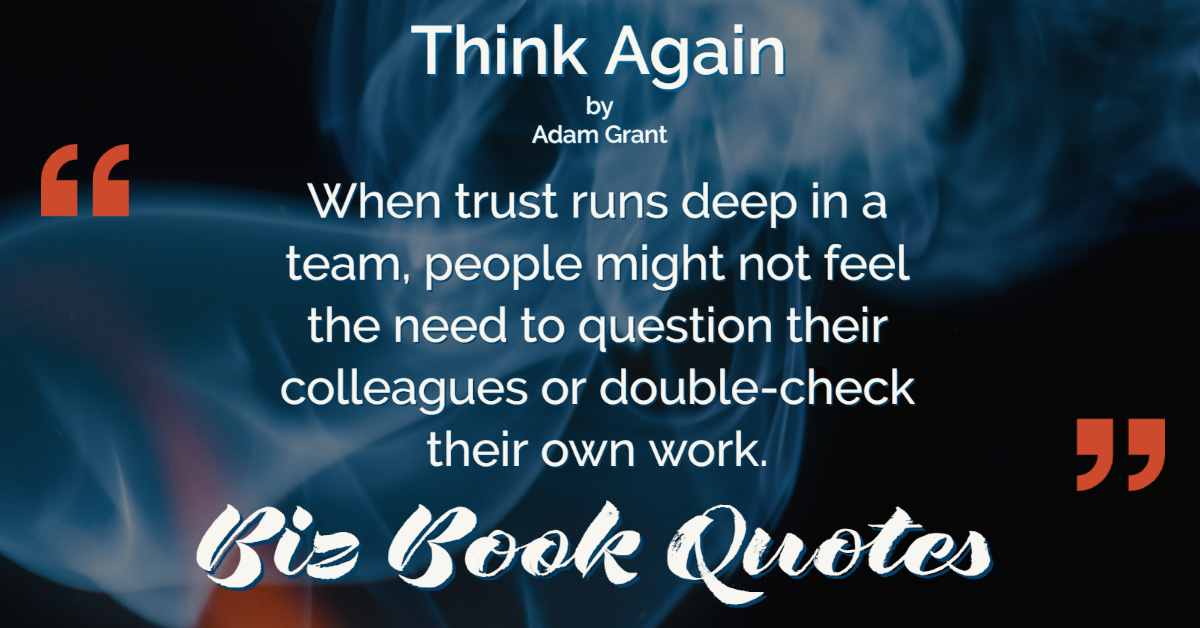
|
Think Again:
When trust runs deep in a team, people might not feel the need to question their colleagues or double-check their own work.
|
208 |
|
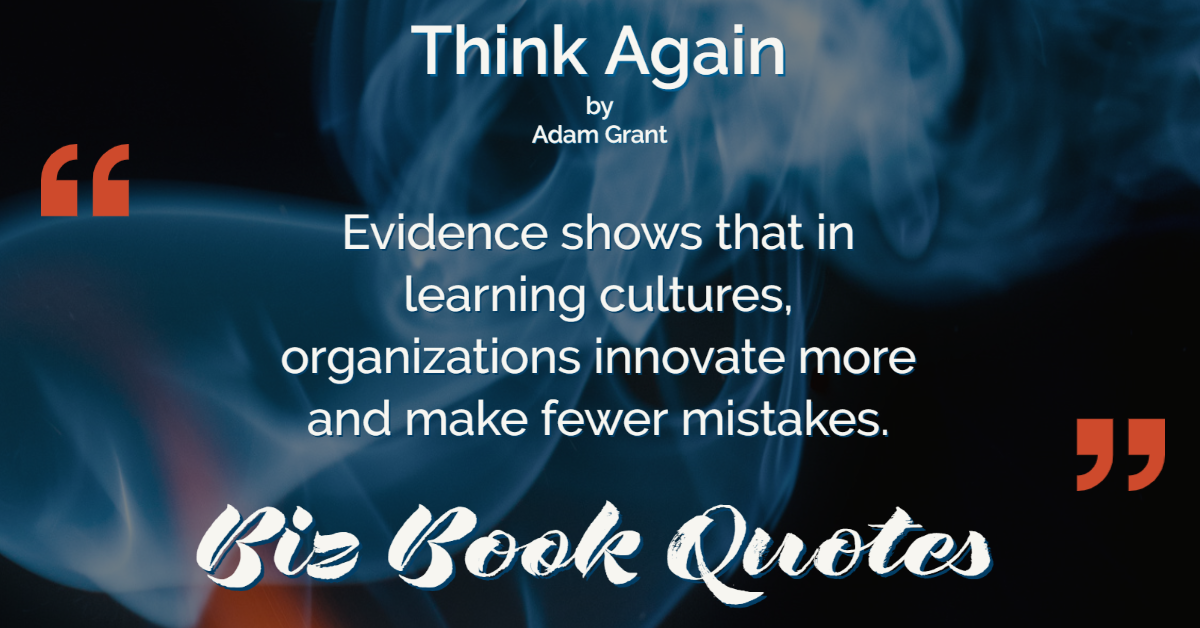
|
Think Again:
Evidence shows that in learning cultures, organizations innovate more and make fewer mistakes.
|
208 |











